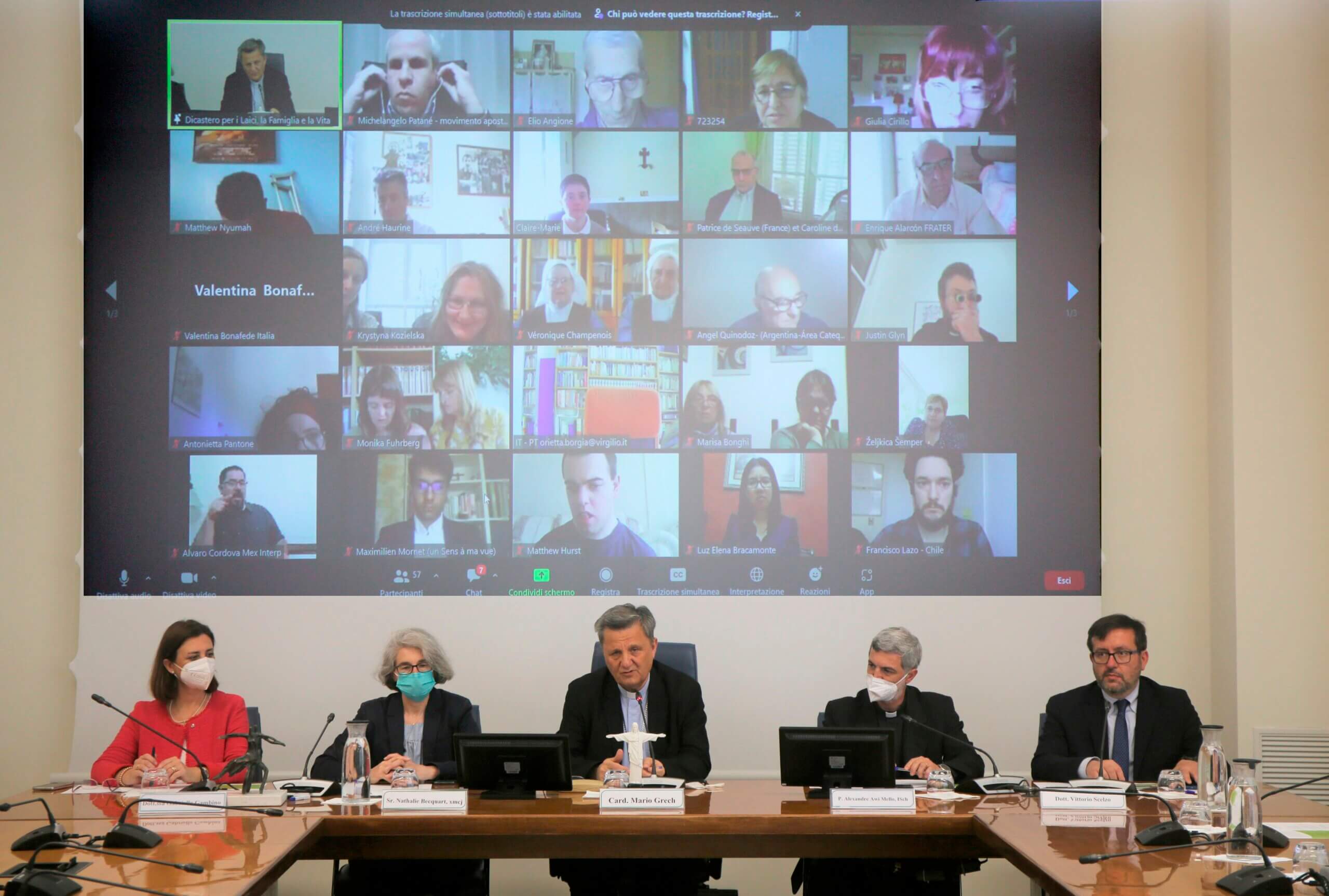
Catholics with disabilities share their vision of a synodal Church
Catholics with disabilities can be and want to be active members of the Church and missionary disciples, but that will require fighting discrimination, exclusion and paternalism, participants told an online listening session for the Synod of Bishops.
The Dicastery for Laity, the Family and Life, in collaboration with the General Secretariat of the Synod of Bishops, sponsored a 2-hour session May 19 with representatives of bishops’ conferences and international Catholic associations to hear directly from Catholic with disabilities, “who are often on the margins of our churches,” according to a media statement.
“Although many of them have already been involved in the meetings promoted by parishes, dioceses and associations” in preparation for the 2023 world Synod of Bishops, “the meeting was in fact the launch of a true international synodal process dedicated to them,” the statement said.
Some 30 participants with sensory, physical or cognitive disabilities joined the meeting from more than 20 countries and shared in their own languages — including three types of sign language — their reflections on the synod questions: “How are we walking with Jesus and our brothers and sisters to proclaim him? For the future, what is the Spirit asking of our church to grow in our journey with Jesus and with our brothers and sisters to proclaim him?”
“Four moving testimonies from Liberia, Ukraine, France and Mexico drew attention to the need to overcome discrimination, exclusion and paternalism,” the Vatican said.
A French woman with Down syndrome, who has received a mandate from her bishop as a catechist and evangelizer, told the gathering, “At birth, I could have been aborted. I am happy to live. I love everyone and I thank God for creating me.”
Schonstatt Father Alexandre Awi Mello, secretary of the Dicastery for Laity, the Family and Life, told participants that one challenge of the synodal process is to “overcome every prejudice” of people who think that someone who has difficulty expressing herself or himself “doesn’t have a thought of their own or anything interesting to communicate.”
The dicastery and the synod office are hoping to be able to continue the discussion with an in-person meeting, and participants in the online session already have made a commitment to draft a document to submit to the synod.

